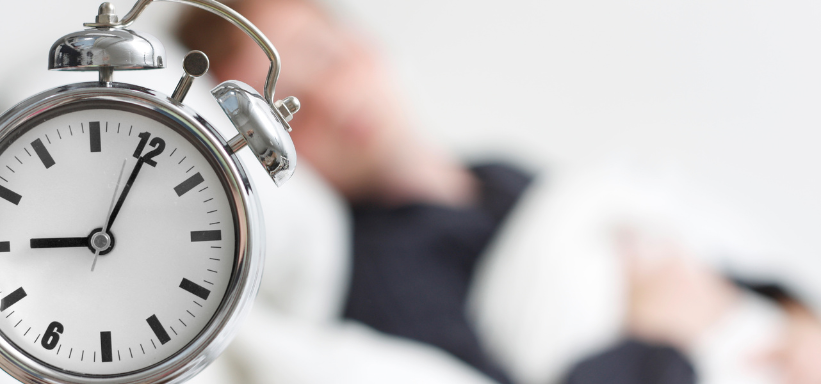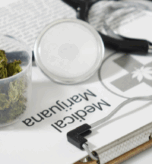When Depression Doesn’t Look Like Depression

Not all depression shows up the way most people expect. If you find yourself feeling emotionally reactive, eating or sleeping more than usual, or feeling crushed by even small rejections—while still being able to experience moments of joy—you may be dealing with atypical depression.
This form of depression is often misunderstood and frequently missed, even by professionals. But it’s very real—and with the right diagnosis, it can be treated effectively.
What Is Atypical Depression?

Atypical depression is a subtype of major depressive disorder (MDD) or persistent depressive disorder (PDD) that includes unique, often contradictory symptoms. Despite the name, atypical depression is not rare—it may actually be one of the most common forms of depression, especially among younger individuals.
What sets it apart? People with atypical depression often show mood reactivity, meaning their mood can temporarily lift in response to positive experiences, unlike in classic depression where mood remains low regardless of external events.
Core Symptoms of Atypical Depression

While everyone’s experience is unique, atypical depression typically involves the following features:
- Mood Reactivity: Temporary improvement in mood after good news, social interaction, or achievement.
- Increased Appetite or Weight Gain: Cravings for carbohydrates and emotional eating are common.
- Excessive Sleep (Hypersomnia): Sleeping more than 10 hours per day or struggling to get out of bed.
- Heavy Feeling in the Limbs (Leaden Paralysis): A sensation of physical heaviness, often described as feeling “weighed down.”
- Heightened Sensitivity to Rejection: Strong emotional reactions to criticism or perceived slights, affecting work or relationships.
How It Differs from Typical Depression
Symptom | Typical Depression | Atypical Depression |
Mood reactivity | Rare | Common |
Appetite | Decreased | Increased |
Sleep patterns | Insomnia | Hypersomnia |
Energy | Low | Often weighed down or sluggish |
Social behavior | Withdrawal | Rejection sensitivity, but can remain social |
Response to events | Minimal improvement | Mood lifts temporarily with positive events |
Understanding these distinctions is crucial for effective treatment. Many individuals are misdiagnosed with standard MDD and prescribed treatments that don’t fully address their specific symptoms.
What Causes Atypical Depression?

There’s no single cause, but contributing factors may include:
- Genetics: Family history of mood disorders can raise the risk.
- Neurochemical Imbalances: Differences in serotonin and dopamine functioning may play a role.
- Hormonal Factors: Atypical depression is more common in women, especially during reproductive transitions (e.g., postpartum, perimenopause).
- Chronic Stress or Trauma: Long-term exposure to stressors or adverse experiences can shape mood regulation.
- Co-occurring Conditions: Often seen in individuals with anxiety disorders, bipolar II disorder, or borderline personality disorder.
What Causes Atypical Depression?
There’s no single cause, but contributing factors may include:
- Genetics: Family history of mood disorders can raise the risk.
- Neurochemical Imbalances: Differences in serotonin and dopamine functioning may play a role.
- Hormonal Factors: Atypical depression is more common in women, especially during reproductive transitions (e.g., postpartum, perimenopause).
- Chronic Stress or Trauma: Long-term exposure to stressors or adverse experiences can shape mood regulation.
- Co-occurring Conditions: Often seen in individuals with anxiety disorders, bipolar II disorder, or borderline personality disorder.
Diagnosis and Evaluation
Atypical depression can be diagnosed by a mental health provider or psychiatrist based on clinical evaluation, personal history, and a structured review of symptoms.
Treatment Options
Effective care is available—and it usually involves a combination of therapies:
- MAOIs (monoamine oxidase inhibitors) have shown strong effectiveness in atypical depression but are used less frequently due to dietary restrictions.
- SSRIs or SNRIs may be tried first but may not be as effective for this subtype in some patients.
- Mood stabilizers may be considered if symptoms overlap with bipolar features.
- Cognitive Behavioral Therapy (CBT) helps reframe distorted thinking patterns and improve coping skills.
- Interpersonal Therapy (IPT) can be helpful, especially for rejection sensitivity and interpersonal challenges.
- Regular movement, even light exercise
- Structured sleep and meal routines
- Reducing sugar and highly processed food intake
- Setting boundaries in emotionally draining relationships
- Ketamine therapy is gaining ground for treatment-resistant depression, including atypical subtypes.
- Transcranial Magnetic Stimulation (TMS) may also be considered in persistent cases.


Frequently Asked Questions (FAQs)
Yes, research suggests it’s more prevalent in women, particularly during hormonal shifts like PMS or menopause.
It can fluctuate, but long-term relief typically requires treatment. Left untreated, symptoms may persist or worsen.
Mood reactivity is temporary and situational—people may feel joy for a moment but quickly return to a depressive baseline
Yes, but they require dietary precautions and careful monitoring. Your provider will guide you through benefits vs. risks.
In mild cases, therapy may be enough. However, moderate to severe cases often require a combination of therapy and medication.
They often co-occur. Atypical depression can heighten anxiety symptoms, especially around social rejection.
Most patients start noticing improvements in 4–6 weeks, though full stabilization may take longer.
Yes, but you may need adjustments or accommodations. A supportive care plan can help balance your responsibilities.
In some cases, especially with mood reactivity and oversleeping, it may overlap with bipolar II. A full evaluation is key.
Understanding the Variability of Depression

Atypical depression is often overlooked—but that doesn’t make it any less real or impactful. If your symptoms fall outside the traditional expectations of depression, they still deserve attention and care.
With the right diagnosis and a personalized treatment approach, meaningful relief is possible—and you don’t have to navigate it alone.





